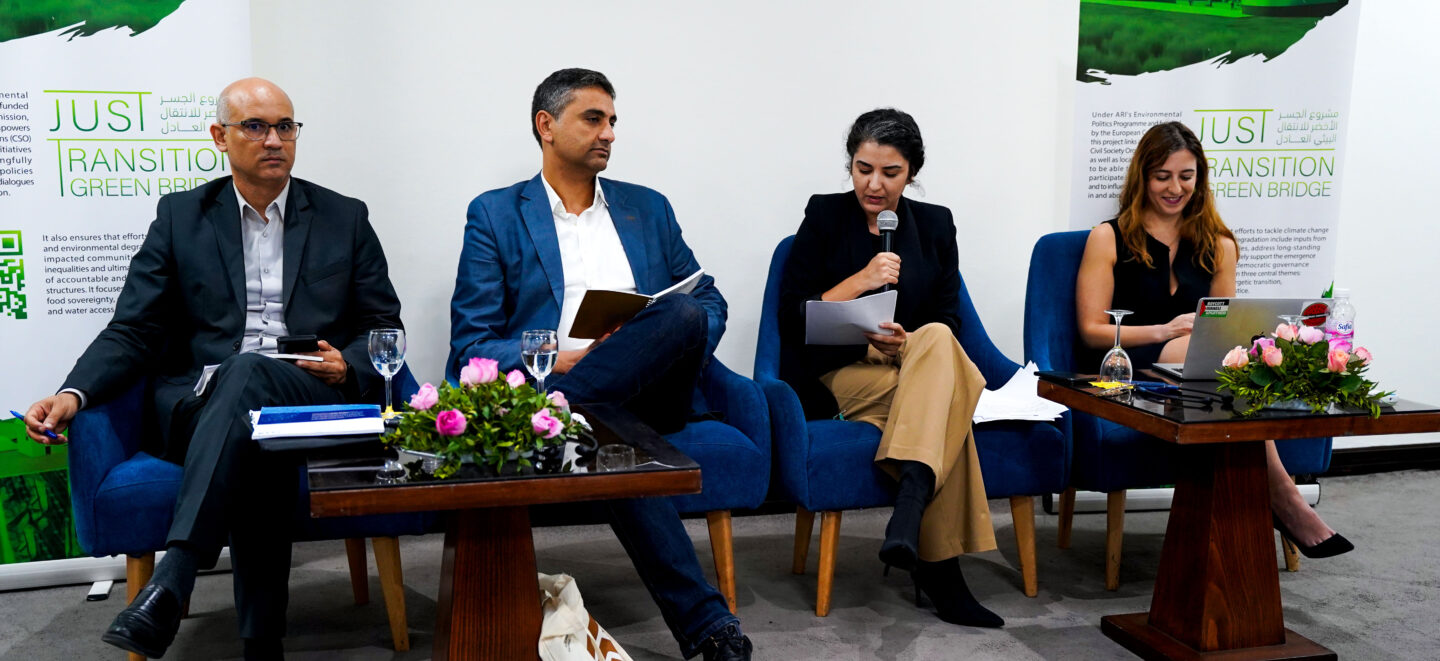Can Tunisia Escape Green Colonialism? An Energy Transition Analysis

Welcome to your ultimate source for breaking news, trending updates, and in-depth stories from around the world. Whether it's politics, technology, entertainment, sports, or lifestyle, we bring you real-time updates that keep you informed and ahead of the curve.
Our team works tirelessly to ensure you never miss a moment. From the latest developments in global events to the most talked-about topics on social media, our news platform is designed to deliver accurate and timely information, all in one place.
Stay in the know and join thousands of readers who trust us for reliable, up-to-date content. Explore our expertly curated articles and dive deeper into the stories that matter to you. Visit Best Website now and be part of the conversation. Don't miss out on the headlines that shape our world!
Table of Contents
Can Tunisia Escape Green Colonialism? An Energy Transition Analysis
Tunisia, a North African nation grappling with economic instability and climate change, is at a crucial juncture. Its energy sector, heavily reliant on fossil fuels, is undergoing a transition, raising critical questions about its sovereignty and development trajectory. Can Tunisia successfully navigate this transition, or will it fall victim to a new form of colonialism – "green colonialism"? This analysis explores the challenges and opportunities facing the country as it strives for a sustainable energy future.
The Allure and Perils of Renewable Energy Investment
The global push for renewable energy presents both opportunities and threats for developing nations like Tunisia. International funding and technological support are crucial for transitioning away from fossil fuels. However, this influx of investment often comes with strings attached. Concerns about "green colonialism" arise from the potential for foreign entities to dominate the renewable energy sector, extracting resources and profits while leaving Tunisia with limited control and benefits.
This isn't simply about exploiting resources; it’s about controlling the narrative and infrastructure. The imposition of specific technologies, potentially less suited to Tunisia's unique geographical and economic context, could lead to dependency and hinder the development of indigenous capabilities.
Challenges Facing Tunisia's Energy Transition
Tunisia faces several significant hurdles in its energy transition:
-
Limited Financial Resources: The transition to renewables requires substantial investment in infrastructure, technology, and skilled labor. Securing adequate financing without compromising national sovereignty is a major challenge.
-
Technological Dependency: Reliance on foreign expertise and technology for renewable energy projects can create a vulnerability to external pressures and limit technological independence.
-
Energy Security Concerns: Balancing the transition to renewables with the need for energy security is critical. Sudden shifts can destabilize the grid and impact economic activity.
-
Social and Political Factors: The transition must address the needs and concerns of communities affected by changes in the energy sector, including those employed in the fossil fuel industry. Social acceptance and political will are essential.
Navigating the Path to Sustainable Energy Independence
To avoid the pitfalls of green colonialism, Tunisia needs a strategic approach focusing on:
-
Prioritizing Local Capacity Building: Investing in education and training to develop a skilled workforce in the renewable energy sector is paramount. This ensures sustainable growth and reduces dependency on foreign expertise.
-
Diversifying Funding Sources: Exploring alternative financing mechanisms, including public-private partnerships and innovative financial instruments, can reduce reliance on potentially exploitative foreign aid.
-
Promoting Indigenous Technological Development: Supporting research and development to adapt and improve renewable energy technologies suited to the Tunisian context is crucial for long-term sustainability.
-
Ensuring Equitable Benefit Sharing: Developing policies and programs to ensure that the benefits of the energy transition are shared equitably across all segments of society is crucial for social acceptance and long-term success.
Conclusion: A Balancing Act
Tunisia's energy transition presents a complex balancing act. The country must leverage international cooperation and investment while safeguarding its national interests and promoting sustainable, equitable development. By prioritizing local capacity building, diversifying funding sources, and fostering indigenous technological innovation, Tunisia can strive for an energy future that empowers its citizens and secures its economic prosperity, escaping the potential trap of green colonialism.
Further Reading:
Call to Action: What steps do you think Tunisia should prioritize to ensure a just and equitable energy transition? Share your thoughts in the comments below.

Thank you for visiting our website, your trusted source for the latest updates and in-depth coverage on Can Tunisia Escape Green Colonialism? An Energy Transition Analysis. We're committed to keeping you informed with timely and accurate information to meet your curiosity and needs.
If you have any questions, suggestions, or feedback, we'd love to hear from you. Your insights are valuable to us and help us improve to serve you better. Feel free to reach out through our contact page.
Don't forget to bookmark our website and check back regularly for the latest headlines and trending topics. See you next time, and thank you for being part of our growing community!
Featured Posts
-
 Mlb Preview Tigers Travel To Tampa Bay For Crucial Game 77
Jun 21, 2025
Mlb Preview Tigers Travel To Tampa Bay For Crucial Game 77
Jun 21, 2025 -
 Bronx Bombers Vs Baltimore Birds Lineup Analysis And Game Day Preview
Jun 21, 2025
Bronx Bombers Vs Baltimore Birds Lineup Analysis And Game Day Preview
Jun 21, 2025 -
 Watch Pfl 6 Rabadanov Vs Lee World Tournament 2025 Qualifying Results
Jun 21, 2025
Watch Pfl 6 Rabadanov Vs Lee World Tournament 2025 Qualifying Results
Jun 21, 2025 -
 June 20 22 Baseball Reds Cardinals Series Preview And Predictions
Jun 21, 2025
June 20 22 Baseball Reds Cardinals Series Preview And Predictions
Jun 21, 2025 -
 Mlb Power Rankings Shakeup Can Anyone Topple The Tigers In Week 12
Jun 21, 2025
Mlb Power Rankings Shakeup Can Anyone Topple The Tigers In Week 12
Jun 21, 2025
